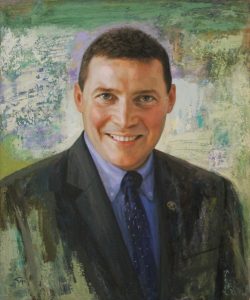Evangelical Use of Material Goods
March 2004
Donwload WORD (196 kb)
English | Español | Français | Português
______________
 Dear Brothers and all who cherish the dream and charism of Marcellin Champagnat,
Dear Brothers and all who cherish the dream and charism of Marcellin Champagnat,
The prophet Micah reminds us that God asks only that we “act justly, love tenderly, and walk humbly with our God.” (Mic 6:9) On the face of it, a simple, straightforward, we might almost say disarming message. A few moments reflection, however, should convince you and me that just the opposite is true. Hearing the Word of God is one experience; taking that Word into our hearts and living it each day is quite another.
I am delighted to send you in this month of the Annunciation a copy of our Marist Plan of Discernment on the Evangelical Use of Goods. We can trace its origin to the Circular that Brother Benito wrote in October 2000. And, I can think of no better way to begin our process of reflection than to re-read the text of that document.
Members of our 20th General Chapter took the project one-step further. In October 2001, they directed the present General Council “to establish a plan of discernment covering the evangelical use of goods in the Institute, and to accompany its implementation in each Province.” (Acts of the 20th General Chapter, Chapter Message, 48.5). The fruit of the Council’s work is the document you are about to read and use.
Brothers, I realize that the evangelical use of goods can be a deeply emotional topic for many of us. It goes to the very heart of who we are as person, and what we represent as a religious Institute. In approaching the subject, we must be honest, but also careful not to mimic the violence and injustice that we are trying to change. And, we must never forget that even our ability to discuss the matter is a privilege not given to persons who are poor. Instead, many of them are caught in an exhausting struggle to survive; they are denied the luxury of rage.
And so, in our discussions we must get beyond partisan positions, and ideologies that serve only to divide us, and instead like Mary at the Annunciation struggle to listen to God’s Word on the matter. At the same time, this Plan of Discernment must be more than idle chatter. In discussing the evangelical use of goods we need to remember that our goal is to achieve clarity about the dimensions of the topic, to understand what is required of us within our Christian and Marist contexts, and to develop and implement plans of action that will give witness to our serious intent in an Institute that is today present in 77 countries.
Let us also remember that this plan addresses the issue of the evangelical use of goods on several levels. For example, private charity differs from justice. The former might entail giving food to someone who is hungry, while the latter demands that we direct our energy toward changing structures and systems so that no one has excess food while others have none.
But as you will see in this Plan justice also requires a change of heart on the part of each of us. And so, you and I must learn to ask ourselves daily these questions: What am I doing, what decisions am I taking, what attitudes do I foster that keep the poor in their place? And we must ask these questions as communities, as Provinces and Districts, and as an Institute as a whole.
A word of thanks to Brother Maurice Berquet and the members of the General Council Evangelical Use of Goods Commission (Brothers Antonio Martinez, Guy Palandre, and Dominick Pujia) who shepherded this project from start to finish. They have consulted widely and have developed a text and process that I believe will be of significant help to us all in addressing the challenge of stewarding our resources as an Institute. Many thanks to all who provided these Commission members with so much helpful feedback on earlier drafts of this document.
I urge you to begin using this Plan of Discernment as soon as possible. Our next General Conference, scheduled for September 2005, will provide us with an excellent forum in which to discuss the experience of using the Plan and examining the initial fruit of our labors. The General Council and I, for our part, pledge not only to use thePlan ourselves but also to animate use of it throughout the Institute.
The poet Carl Sandburg once described persons who are poor as being “tired of wishes, empty of dreams.” As the gap between rich and poor continues to grow in so many parts of our world, his description is more apt than ever. Poverty is a broader area of hardship than many of us will ever imagine. It cannot be defined solely by government statistics on annual income. For poverty can eventually erode the spirit, extinguish hope, and foster despair. Like Marcellin, who had a special place in his heart for persons who were poor, let us address this issue with courage and prophetic action so that others will be able to say of us “they act justly, they love tenderly, and they walk humbly with their God.”
Thank you.
Blessings and affection,
Br. Seán Sammon, Superior General – March 2004
